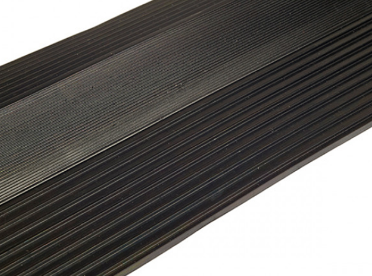Garage Door Seal are important for more reasons than just looking pretty. Garage entry doors help keep people and valuable items safe from the weather elements, as well as protecting your home and belongings from damage. Properly installed and maintained, your garage entry door can be a main part of your home’s interior design and add to the curb appeal. With proper garage door insulation, you can keep your garage at a comfortable temperature without having to spend a fortune on cooling or heating expenses each year. You can even create your garage’s energy efficient by utilizing a combination of rubber and garage door sealants.

Garage doors are constructed of many different materials, including aluminum, fiberglass, steel, wood, laminate and more. Each material offers various benefits and drawbacks, and each should be carefully considered before installation. A well-designed and properly insulated garage door seal can help keep warm and cool air inside your home and keep your property’s value up to a good level. It is best to contact a professional insulation contractor for installation assistance, but some of the pros and cons of different materials are the same for all types. Here are some pros and cons of insulation for garage doors:
Hanging Garage Door Seal The most common installation method for garage door bottom seals is to use a special plastic called a “hooima” sheet. This special plastic is made of a synthetic thermoplastic rubber compound that provides excellent insulation and acts as a vapor barrier. A “hooima” must be permanently affixed to the garage door. Permanent installation of a “hooima” will require professional installation assistance, but the material has the advantage of being one of the most effective insulators available.
Polyurethane Foam The foam is a thick, clear liquid that is typically placed over a rubber mold, then pressed into place. Once affixed, it will not allow air or moisture to penetrate, which ensures a more durable seal. The material will stay rigid until it reaches its maximum density, at which time it will harden again and begin to flatten out. A polyurethane foam garage door seal can be extremely durable and will last a very long time. It is also resistant to heat, cold, chemicals, and corrosion, making it a great choice for use in any climate.
Different Lengths of Seals Most rubber seals are available in different lengths to meet the varying needs of commercial and residential applications. Longer lengths provide increased structural integrity and increased protection against harsh weather. Some even have shock absorbing capabilities to protect the motor and rollers during high impact conditions. These longer styles of seal provide an extra measure of protection for sliding doors that need additional protection from slippage. Regardless of the application, it’s always important to select the correct type of seal, as not all rubber and foam types are created equally.
Garage door bottom rubber seals can be found at most major home improvement stores. However, it is always best to speak to a professional to ensure quality and to inquire about warranties and guarantees. Garage door seal kits and rubber garage door seals can provide the added protection that may be necessary for your garage door. Whether you require a simple repair or a full renovation of your garage, rubber seals and garage door bottom rubber seals can offer the protection you need.